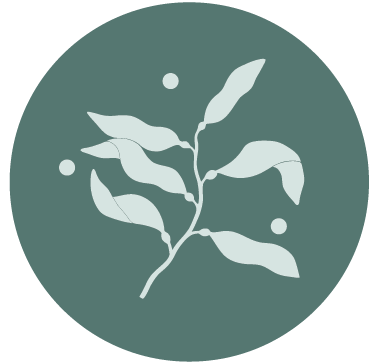The language of water
Editorial #7
Robert Wood
After six issues of Portside Review, we have taken this opportunity to pause and reflect, to spend a moment looking at the ripples that mark the still surface, to wait for the waves to pass above. In the past year and a half, we have published more than 150 pieces, and this year we have focused on Indonesia and Singapore, with events in both countries. It feels good to see the world opening up again, to see ships setting sail and flights taking off. Interconnection has always been at the heart of everything we do, as we seek to build literary bridges between ports all across the Indian Ocean.
This issue, our seventh, is no different – no stranger to relating to others and the othered. It is though, closer to home, closer to the Centre for Stories itself and our location in Boorloo (Perth), with many pieces coming from our city and continent as well. And so, we shift from a national focus to a regional one, an inner liminal one, one that resonates with our siblings on shores nearby.
We have been able to do this only because of submissions from those old and new, with many of these pieces being selected from our openly accessible, freely available, Submittable portal. That alone should give readers a chance to think of sending us their work! We love reading it all, so be brave, be a pirate, and mail us in your best essays, poetry, prose, and pitch us interviews and sound pieces too.
In this issue we feature poetry from many local Boorloo poets, some well-known on the seven seas and some new. SoulReserve sets the tone with her poem ‘Watermarks’, which is an exploration of the memory of water. Noongar poet Megan Ugle shares two poems, exploring Dreaming and what it means to be a minority on your own land. Local writer and musician, Jess Nyanda Moyle shares ‘Popstars’ and ‘Aussie Squint’, making light of growing up and growing older in an industry known for age discrimination. We also have Nyoongar poet Daniel Hansen who offers a sequence of three poems on family connection and generational strength. From Western Australia’s south-west region on Wadandi country, Brazilian writer Ana Brawls brings us ‘My son, I give you the ocean’. We have poetry from the east coast too; from Naarm (Melbourne), we have Madhvi Thakur sharing a trio of poems about love; from Ngunnawal/Ngambri country (Canberra region) Phoebe Lupton shares ‘Speaking to Beyond’. Connecting to our neighbours in India, we have a sequence from Scherezade Siobhan writing of home, of language, of ritual, and what it means to maintain normalcy, mid-pandemic, as we settle into the ‘new-normal’.
The local prose featured in this issue emphasises resilience, transformation, and connection to land, culture, family, strangers, and even ourselves. Frances An shares a playful piece of fiction about courage, love, and self-destruction. Asha Rajan writes about grief and life’s challenges in ‘Wild Goose’. Luoyang Chen returns to Portside Review a second time with an essay on his experience of racism while studying at an Australian university. John Mateer also returns with two short fiction pieces expertly depicting the comings and goings of a Greek restaurant on a popular street in Perth’s suburbs. Jesse Galea brings us a humorous and heartfelt essay reflecting on moments in life that occur while transitioning gender. Zahina Shah shares a short story about a painter coming to terms with the death of a close friend. Finally, Yamatji writer Jo Newman offers us a glimpse into their life as a writer in their piece titled 'Fragments: thoughts on writing while chronically ill’. We’re particularly grateful to Centre for Stories and Emerging Writers Festival for allowing us to publish this piece, which was originally published in a collaborative digital anthology called here & now. From outside of Boorloo, we look to Singapore for Zhao Xingyu’s essay ‘Djokovic the Villain’ and we also share Indonesian writer Hadiwinata’s prose piece ‘Someone With My Name’ translated by Ian Rowland.
This issue also features meaningful conversations between Tiffany Ko and Paul Cleary, talking about his recent book Title Fight: How the Yindjibarndi Battled and Defeated a Mining Giant. We have a yarn with local photographer Cole Baxter and journalist Madeleine Lombardi discussing activism through photography. And, last but not least, emerging writers Sofia Scaturro and Abbey Carson share a casual discussion about the villainisation of women in ghost stories using Buzzfeed's Unsolved as inspiration.
Producing this aesthetically beautiful journal would not have been possible without ample help, and so we are pleased to feature photographs by Cole Baxter and Millie Murfit, and we are thankful to have Lily Nie of Paperlily Studio continuing to illustrate each issue.
Portside Review continues to publish the best writing in the Indian Ocean, to promote and celebrate and reflect on why this body of water is our body of water, to mark our time in a way that washes away, that cleanses and heals and relieves us, all as we move towards a better tomorrow. Thanks for reading and look out for the next issue in December 2022.
A note on spelling
The spelling of ‘Noongar’ can vary (e.g. Nyoongar, Nyungar, Nyoongah). Portside Review uses the spelling the individual chooses, hence the variation of spellings.
Robert Wood
This issue of Portside Review is funded by the Department of Foreign Affairs and Trade.Robert Wood is the director of writing at Centre for Stories in Boorloo (Perth). He has worked for Peril, Cordite, Liminal, all based in Naarm (Melbourne). The author of more than 300 pieces of literary journalism, Robert is interested in translation, rocks, collaboration, walking, and food. Read more about him here.



